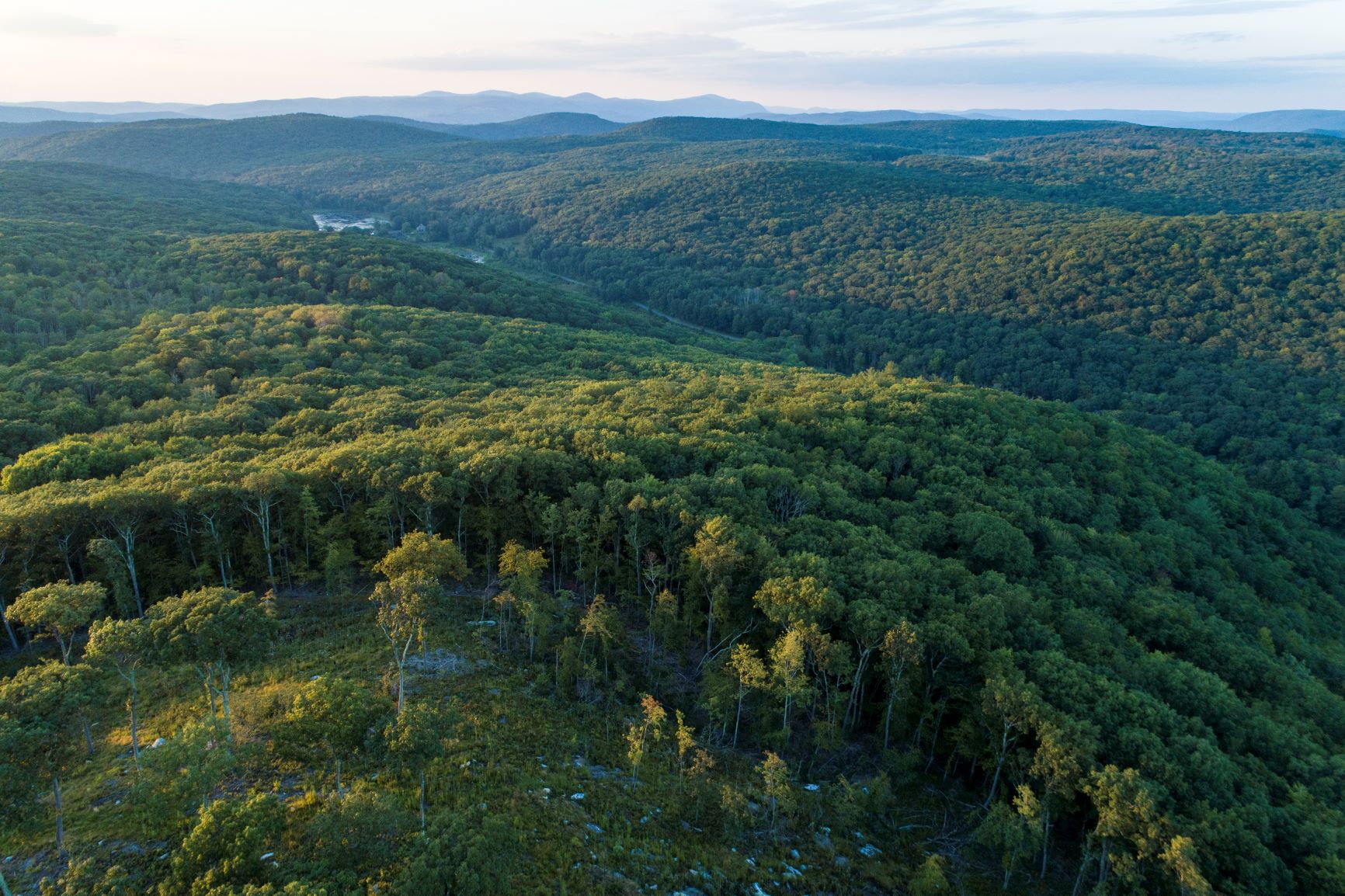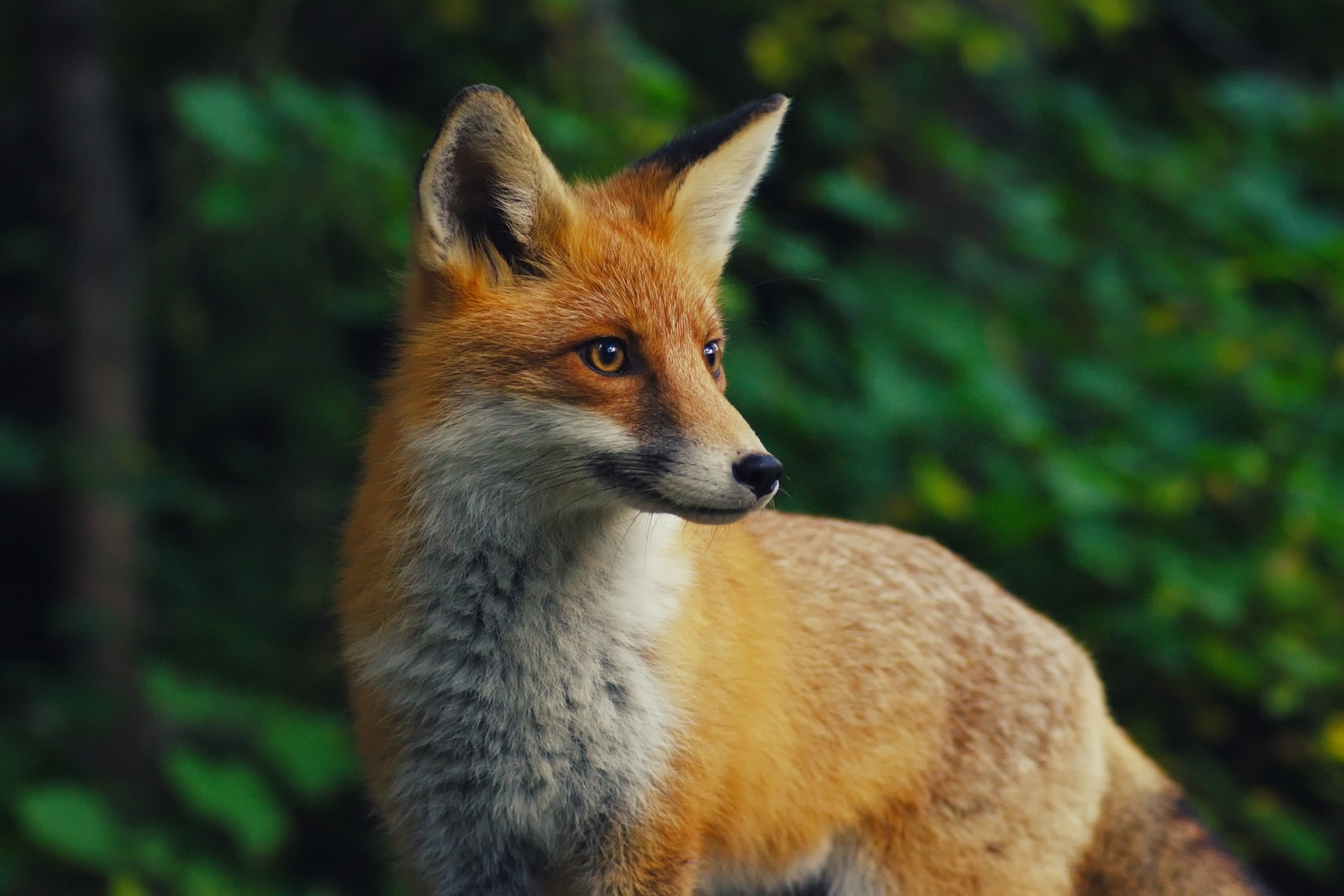Sebastião Salgado is a photojournalist renowned for his long-term projects documenting the humanity and dignity of dispossessed people. In this video shares his personal journey that led him to his craft and inspired his commitment to reforestation. His message about stewardship, resiliency, and the transformative power of forests applies to Connecticut’s forests as much as Brazil’s rain forests. We hope you enjoy this engaging and inspirational video.
Our New Name and Merger with Naromi Land Trust
Weantinoge Heritage Land Trust Announces Name Change and Merger with Naromi Land Trust
Naromi Land Trust and Weantinoge Heritage Land Trust enthusiastically announce their intention to merge on June 30, 2020. Weantinoge, the surviving entity of the merger, will change its name to Northwest Connecticut Land Conservancy (NCLC).
Founded in 1965, Weantinoge is Northwest Connecticut’s regional land trust and the largest land trust in the state. As a guardian of natural and working lands, public recreation areas, and drinking water resources, Weantinoge permanently protects 10,500 acres in seventeen communities, including 12 public hiking preserves, 29 working farms, and 42 miles of rivers and streams. Naromi was founded in 1968 to benefit the general public and lands of Sherman, and permanently protects 1,500 acres, including 11 public hiking preserves.
“This is a momentous time for our organization and an exciting one. The new name, Northwest Connecticut Land Conservancy, better reflects the work that we do. But, our mission to safeguard the natural lands and waters our communities depend on is not changing,” said Weantinoge’s Executive Director, Catherine Rawson.
Naromi and Weantinoge have worked in close partnership for several years on projects including volunteer trainings and education and, most recently, to protect 20 acres of critical agricultural land in Sherman. Both organizations are accredited by the Land Trust Accreditation Commission and are in a strong financial and governance position.
“Combining the efforts of our two organizations enables us to more efficiently provide the services and benefits our members care most about. It has never been more important to focus on strengthening our ability to serve the Town of Sherman forever,” said Naromi’s Executive Director, Amanda Branson, who will remain with the merged organization.
“I am delighted to share this great news with the Naromi community,” noted Naromi Board President, Chris Jellen. “The Board of Directors of Naromi join me in our resolve to ensure the forever protection of the lands in our care and deliver the most benefits of conservation to our community. Joining Weantinoge in their next chapter as the Northwest Connecticut Land Conservancy is the best way to do that.”
After the merger, Northwest Connecticut Land Conservancy will protect over 12,000 acres including 23 public preserves with hiking trails and 30 working farms. “For 55 years, Weantinoge has led the state in the conservation of natural lands and waters,” said Hiram Williams, Board President of Weantinoge. “We look forward to working in partnership with the Sherman community to safeguard the natural lands they value and depend on most, forever. And, we are thrilled to continue our legacy of environmental conservation as Northwest Connecticut Land Conservancy.”
Members of Naromi will be asked to approve the merger at a special meeting on June 13, 2020. The meeting will be held via video conference. More information about how to participate in the special meeting, who can vote, and other details is available at naromi.org/merger, or contact Amanda Branson, Executive Director of Naromi at amanda@naromi.org or call 860-354-0260.
April E-News: The Land You Save Is Here for You
Click here to read our April e-newsletter.
Read Our Latest Impact Report Here
As supporters of our work, you are creating a conservation legacy that will last beyond our lifetimes. In this Impact Report, you will see the breadth of what we are accomplishing together. Through our acquisition, stewardship, education, and partnership programs, your support touches the lives of thousands. You have made it all possible and the future is ours to create together. Click here to read the full Impact Report.
Now Hiring: Summer Interns
Weantinoge is hiring two paid interns to work 30 hours per week (each), from June through August 2020*. They will be based in Weantinoge’s Kent, CT office and be trained and managed by Weantinoge’s professional staff. Work will take place at Weantinoge preserves and at preserves owned and managed by other area land trusts. This is a unique, hands-on opportunity to learn about land and public preserve management, trail construction and maintenance, GPS/GIS, and other important stewardship work at different organizations. These internships are funded by a grant from the Connecticut Community Foundation as part of Weantinoge’s partnership program.
Work will be performed outdoors in various weather conditions and on rugged terrain, as well as indoors in an office setting.
Housing is available if needed in Sharon, CT for a minimal cost.
March E-News: 55th Anniversary and Accreditation Renewal Announcement
Click here to read out March e-newsletter.
Foxes, Land Conservation, and Lyme Disease
How does land conservation reduce the transmission of Lyme disease? Dr. Tim Hofmeester’s research suggests that predators, like foxes, reduce the number of ticks that become infected with the bacteria that causes Lyme disease by controlling the tick’s preferred host species, the white-footed mouse. It’s a fascinating area of research that reminds us there is still much to learn about the complex interactions between species in a healthy ecosystem. Paul Elconin, Weantinoge’s Director of Land Conservation, was quoted in this News Times article about the work Weantinoge is doing to protect large areas of high-quality forest so predators have the space to thrive.
Lyme disease is caused by a bacteria, Borrerlia burgdorferi, and transmitted to humans through the bite of an infected tick, most commonly the deer tick (Ixodes scapularis). Ticks become infected only if they feed on an animal that carries B. burgdorferi. In the eastern United States, upwards of 90% of white-footed mice carry the bacteria and this mouse is one of the most common host species for the deer tick.
Over two years, Dr. Tim Hofmeester compared the number of ticks on mice from areas with healthy predator populations to the number of ticks on mice caught in low predator areas. Mice caught in the areas with healthy predator populations had only 10 to 20 percent as many ticks as those from the low predator area. Fewer newly hatched ticks feeding on white-footed mice means that fewer adult ticks will carry the B. Burgdoferi bacteria, “The predators appear to break the cycle of infection,” said Dr. Hofmeester.
Lyme disease is more complicated than a single tick bite. Habitat fragmentation, hunting, and the removal of larger predators like cougars may all figure into the dwindling of small mammal predators like foxes, weasels, bobcats, and fishers. Land conservation can play a role by protecting large tracts of land that small mammal predators require. As research continues, will public health officials consider land conservation to protect small predator species as one way to slow the spread of Lyme disease? The New York Times notes, “Nothing else — like culling deer or spraying lawns with tick-killing pesticide — has worked so far to stem the incidence of tick-borne disease, which is spreading in the Midwestern United States, in parts of Canada and at higher altitudes across Europe.”
Kestrels Nesting at Hauser Preserve
Weantinoge is extremely lucky to count Art Gingert among its volunteers. Art has installed four nesting boxes on Weantinoge preserves since 2011. With his careful oversight, Weantinoge has seen nesting kestrels at properties in Kent, Salisbury, and Washington each year. And, this past July, kestrels nested at the Hauser Preserve in Litchfield (one of Weantinoge’s 14 public hiking preserves) for the first time.
Kestrels nest in cavities but cannot create them. They rely on old woodpecker holes, tree hollows, and rock crevices, but they will readily take to nesting boxes if they are properly situated. Male kestrels will identify several options to show the female and the female kestrel will make the final choice.
The American kestrel (Faclo sparverius) is a state-listed threatened species, due in part to the lack of information on its population, a decline in habitat, and a perceived decline in nesting and migrating numbers.) If current trends continue, the Cornell Lab of Ornithology predicts kestrel population could decrease 50% by 2075. What will help kestrels thrive? Protecting land from development, maintaining open meadow habitat for them to hunt, and thoughtfully placed nesting boxes to replace dead trees lost to clearing or windstorms.
Do you think you have seen a kestrel or know of good nesting habitat? Let our stewardship team know by emailing info@weantinoge.org.
The U.S. Fish & Wildlife Service administers the nationwide bird banding program, and if you find a banded bird (dead or alive) you can report the band number online, and receive an official document telling you what species of bird, where it was banded, by who, how old the bird was.

Our Merger with BOSLI: Lasting Conservation through Partnership
Weantinoge Heritage Land Trust, Inc. has announced the completion of a merger between itself and Brookfield Open Space Legacy, Inc. (BOSLI) effective as of October 31.
Weantinoge, the surviving entity of the merger, is the largest land trust in Connecticut and the 18th largest land trust in the United States by the number of lands conserved. Founded in 1965, Weantinoge permanently protects 10,300 acres in Litchfield and northern Fairfield Counties, including 12 public hiking preserves; 29 working farms; and 42 miles of rivers, lakes, and streams. In addition, Weantinoge offers free education programs to more than 2,000 children and families annually. Weantinoge is a nationally accredited land trust with the Land Trust Accreditation Commission. For its commitment to conservation excellence and education it has received a 2013 EPA Environmental Merit Award and a 2017 Working Lands Alliance Pathfinder Award.
“Weantinoge has worked closely with BOSLI for a number of years and this merger is a natural next step for our two organizations,” said Catherine Rawson, Executive Director of Weantinoge. “Through this merger Weantinoge will ensure BOSLI’s land assets are protected in perpetuity. Combining our efforts also enables us to more efficiently provide services and benefits that our members care most about, such as improved public access to natural lands. We are pleased to work even more closely with BOSLI and the community of Brookfield.”
BOSLI, also founded in 1965, is an all-volunteer, non-profit land trust having stewardship of 167 acres of protected land in Brookfield. As stated by Louis Memoli, President of the Brookfield Open Space Legacy, ” BOSLI has a legal obligation to forever protect and maintain our nature preserves but it has become increasingly difficult to accomplish this mission. Over the past few years, BOSLI has relied heavily on Weantinoge for guidance, staff support, grant applications, project management, and their volunteers. It has become apparent to the BOSLI Board of Directors that we can no longer live up to our legal responsibilities alone and that the future of Brookfield’s open space will be better served by merging with Weantinoge. We believe that this is prudent and our best option to ensure that Brookfield’s open space is forever preserved for the benefit of the community and for the education and enjoyment of its residents.”
BOSLI will be integrated into the Weantinoge organization and its board members will remain actively engaged in preserving and protecting Brookfield’s private open space as part of Weantinoge’s mission. Both organizations were in a strong financial and governance position at the time of the merger. As a result of the merger, Weantionge has taken on the management of two public nature preserves with hiking trails
The two organizations will celebrate the merger at Weantinoge’s Annual Meeting on Saturday, November 23 from 10:30 AM to 12:00 pm at the Kent Community House, located at 93 North Main Street, Kent, CT. This event is free and open to the public. For more information or to RSVP, please contact info@weantinoge.org.


